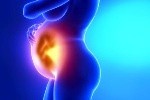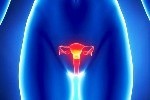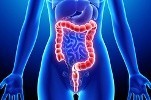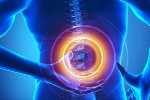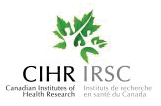Tension Headache
Tension type headaches (TTH) are recurrent episodes of headache lasting minutes to weeks. The pain is typically pressing or tightening in quality, of mild to moderate intensity, and bilateral in location, and does not worsen with the routine physical activity. Nausea and vomiting is usually absent, but photophobia or phonophobia may be present.
These headaches were previously known by many terms such as psychogenic headache, stress headache, psychomyogenic headache, muscle contraction headache etc. However, the term "tension type headache" (TTH) has been chosen by the International Classification Headache Diagnosis I (ICHD I) in 1988 and have been retained by ICHD II in 2004.
The words "tension" and "type" underscore its uncertain pathogenesis and indicate that some kind of mental or muscular tension may play a causative role. However, a large number of clinical and neuro-physiological studies leave little doubt about its neurobiological basis and takes it away from the realms of psychological diseases.
Tension type headache is the most common form of headache. However, most subjects with acute tension type headache never consult a doctor. If necessary they treat themselves with over-the-counter analgesic drugs. Sometimes, however, these can be frequent or chronic (as well as severe) thereby causing major health problems and great suffering to the affected individuals.
Classification
In International headache Society classification (ICHD II), tension type headaches have been divided into two forms, episodic (ETTH) and chronic (CTTH). The episodic tension type headache has been divided into two groups, namely infrequent and frequent. All the three types of tension type headaches share similar clinical features except for frequency. It is also suggested that on clinical examination, the clinicians should look for pericranial tenderness in patients with tension type headaches and sub-classify them as those associated or not associated with pericranial tenderness.
Clinically, it is difficult at times to distinguish TTH from early phase of migraine attack. Further, many chronic patients of TTH overuse medications and in this setting differentiating medication overuse headache from CTTH becomes difficult. ICHD II has introduced the diagnostic category of probable tension type headache to address this situation. For probable episodic tension type headache, migraine without aura needs to be excluded. For probable CTTH, medication overuse headache (MOH) needs to be ruled out in addition. It is to be noted that ICHD II version requires withdrawal of medication for 2 months and disappearance of headache following the withdrawal to diagnose MOH. This is paradoxical as majority of CTTH patients overuse medications.
Diagnosis
The diagnosis of tension type headache is essentially clinical and relies only on symptoms. Thus a detailed history taking through examination (to rule out any secondary cause) is mandatory. No laboratory tests can make the diagnosis.
Clinic features
Pain
The pain of TTH is usually described as dull, pressure like, constricting or giving a sense of fullness in the head. Quite frequently patients describe their pain as like wearing a tight hat or a tight band around the head, or bearing a heavy burden on the head. Physical activity has no influence on headache intensity in majority of patients. This is in sharp contrast to migraine where the pain worsens on routine physical activity and thus is considered to be one of the best criteria to distinguish between migraine and TTH. In the TTH the pain location is usually bilateral in 90% of the patients. Location of pain however varies considerably and can be either interior or posterior.
Accompanying symptoms
Nausea and vomiting if present, rules out the diagnosis of tension type headache. However, about 20% patients of TTH can complain mild-to-moderate anorexia (as per ICHD I criteria) which needs to be distinguished from nausea. Photophobia or phonophobia may be present while presence of both symptoms is not allowed.
Precipitating and aggravating factors
Stress, lack of sleep, and not eating on time are among the most common headache precipitants reported by both migraine patients and those with tension type headache. Occasionally alcohol and menstruation have also been reported as headache precipitants by some patients with ETTH. Further, conditions that are known to commonly aggravate established headache attacks in patients with migraine are also reported as aggravating factors by a significant number of ETTH patients. Thus these features are not very helpful to distinguish TTH from migraine although they may have a bearing on management.
Diurnal variations
TTH is often reported to start at some time during the day and to increase slowly. Then the headache remains throughout the day, and is often unaltered during widely varying activities although some people may have an aggravation by late evening.
Treatment of Acupuncture for Tension Headache
“The Cochrane Review of Acupuncture for Tension-Type Headache,” by Linde et al (1) gives, for the first time, evidence that acupuncture is effective for frequent, episodic, or chronic TTH and thus provides a valuable nonpharmacological treatment option. In the light of the data, one would expect these findings to redefine the clinical significance of acupuncture for the treatment of TTH within Western medicine.
TTH is widespread; epidemiological studies show a one-year prevalence of 30% to 60% for episodic TTH and 2% to 3% for chronic TTH (2). It is also hard to treat.
Tension-type headache is one of the main reasons for the consumption of analgesics worldwide, but this conventional therapy poses a dangerous problem in Western medicine. It is estimated, for example, that in Germany 80% of over-thecounter painkillers are taken by headache patients and account for 2,000 to 7,000 deaths annually, mainly due to gastrointestinal bleeding (D.O. Stichtenoth, personal communication, February 2006) (3).
In contrast, acupuncture is rated as a relatively safe therapy (4).
For prophylactic treatment of chronic TTH, tricyclic antidepressants, mainly amitriptyline, are most widely used. Surprisingly, only 14 trials of this therapy, with very small samples (median 36,
range 15-197), inadequate efficacy parameters, and short durations, have been performed. 5 Ten of these are positive, but the clinical relevance of their outcomes is questionable. This contrasts to
acupuncture, for which the Cochrane review lists 11 strictly selected randomized controlled trials with 2,317 participants (median 62, range 10-1,265) for TTH.
In view of the data presented in the Cochrane review, one should expect that acupuncture will soon be recommended as a nonpharmacological therapy because of its high level of evidence (ie, a positive
systematic review), its negligible adverse effects, and its effectiveness on the reduction of headache days in chronic TTH.
References
1. Linde K, Allais G, Brinkhaus B, Manheimer E, Vickers A, White AR. Acupuncture for tension-type headache. Cochrane Database Syst Rev. 2009;1:CD007587.
2. Schwartz BS, Stewart WF, Simon D, Lipton RB. Epidemiology of tension-type headache. JAMA. 1998;279:381-383. Cochrane Reviews EXPLORE November/December 2009, Vol. 5, No. 6 357.
3. Wolfe MM, Lichtenstein DR, Singh G. Gastrointestinal toxicity of nonsteroidal antiinflammatory drugs. N Engl J Med. 1999;340:1888-1899.
4. Witt CM, Pach D, Brinkhaus B, et al. Safety of acupuncture: results of a prospective observational study with 229,230 patients and introduction of a medical information and consent form. Forsch Komplementmed. 2009;16:91-97.
5. Paola Schiapparelli, Gianni Allais, Sara Rolando, Gisella Airola. Acupuncture in primary headache treatment. Neurol Sci (2011) 32 (Suppl 1):S15–S18.
Contact Us
Chalmers Medical Building
328 Hwy 7 East Suite 201,
Richmond Hill ON L4B 3P7
Tel: 416 399-3888
E-mail: info@aahclinic.com
Conditions Treated
Effective Herbal Therapy for Inflammatory Bowel Disease
NO Surgery!
Carolyn XU Treats Ulcer Colitis Successfully
Considering Therapy?
Resource Links
References
Donation
Great things happen when you put your heart into it.
Click Here to Send us your request
Tips
Questions about your first appointment or if your insurance will cover the cost? Find more information below.


